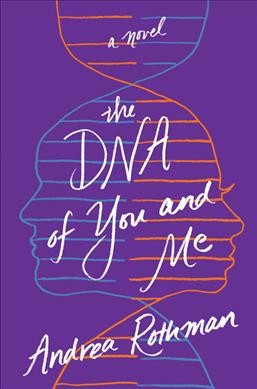The Lilith Blog 1 of 2
April 14, 2020 by Chanel Dubofsky
A Novel About Women, Science, Ambition— and Love
A wish for readers in 2020: May we finally and fearlessly engage with the persistent and insidious trope of the “unlikeable” female character. You might recognize these women – they have complicated desires and emotions and sometimes they make decisions that make the reader gasp and gnash her teeth and are desperate to find out what happens, and why. In other words, “unlikeable” female characters should probably just be called “characters.
 Emily, the protagonist of Andrea Rothman’s debut novel, The DNA of You and Me (a finalist for the 2019 International Latino Book Award), now available in paperback, is a woman who might be considered difficult. She’s a woman of ambition, her daily life split between her research lab and her dorm room. “She wants to pursue science more than anything, even more than she wants to have a personal life that looks a certain way,” says Rothman, herself a former scientific researcher of smell who spent her career in Venezuela, Israel, Germany, and New York.
Emily, the protagonist of Andrea Rothman’s debut novel, The DNA of You and Me (a finalist for the 2019 International Latino Book Award), now available in paperback, is a woman who might be considered difficult. She’s a woman of ambition, her daily life split between her research lab and her dorm room. “She wants to pursue science more than anything, even more than she wants to have a personal life that looks a certain way,” says Rothman, herself a former scientific researcher of smell who spent her career in Venezuela, Israel, Germany, and New York.
DNA is an intimate novel, made for readers who crave an insular world crafted by a writer who knows what it’s like to love something so deeply that it must be rendered on the page.
There is a love story in DNA, one that grows from both the intense and relentless atmosphere of a lab, and the heart wanting what the heart wants. “It’s more complicated than just ‘follow your research or your heart’,” says Rothman, and it’s this assertion that drives the novel; that there are no absolutes, even in science.
But there’s also the reality of competition between women in an environment like a lab which Rothman remembers well. “The competition gets more fierce as you ascend,” she says, “and things can get more traumatic.”
For Emily, who’s socially awkward on a good day, it’s even harder to navigate the intricacies of relationships on top of her desire to surge ahead in her work, and so, as a well-built character in a novel with a subtle and powerful engine, it goes far beyond the hideously exhausted trope of “women can’t be friends.” Emily doesn’t connect with or react to the world around her in ways that are traditional or predictable, which applies to both her romantic relationships and her family. The things that are supposed to matter to her don’t. “If they did,” Rothman points out, “it would have been a different book.”
In the best moments of the writing process, those which keep writers going, the world outside disappears. We might think of science as being the exact opposite of fiction, but in reality, it’s not so different, says Rothman. “In both cases, you’re at the bench for hours, and then suddenly, you discover something.”
It’s that time spent, examining the ins and outs of what makes an organism move, that ultimately results in a strong narrative and characters who refuse, by their very nature to perform according to the rules of gender or even of convention.
Chanel Dubofsky is a writer of fiction and nonfiction in Brooklyn, NY and a regular contributor to Lilith.
 Please wait...
Please wait...